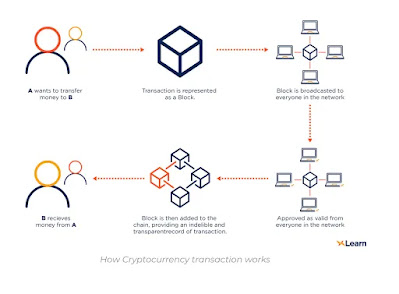Want your loved ones to claim your assets with ease in your absence?
Follow these 5 steps
Write a
Will. It is important. It not only protects the legal heirs, but also gives the
deceased the full authority and charge over his or her assets
Renuka
Iyer, 52, a successful architect, lost the battle fighting against COVID-19 in
the summer of 2020. She is survived by her spouse Krishna Iyer and their
two sons Ram, 28 and Rahul, 21. Coming from a strong commerce background,
Renuka used to look after all the financial affairs, be they managing the
bills, savings and investments in various asset classes. She was the true
Finance Minister of her house. They had a Financial Consultant who was guiding
her.
Her sudden loss was a big blow and a dent in the family. Krishna,
being an Engineer works with a leading IT company and had minimal idea about
where the monies were lying invested. Ram is married and manages his own funds.
However, he went for his higher studies and has continued to stay in Australia.
He is settled there for the last six years. Rahul is focusing on going abroad
for his higher studies.
At a loss
on what
to do with their finances, and with little knowledge and
help following Renuka’s sudden demise, Krishna reached out to their financial
planner. There were many investments that were made in Renuka’s name. Writing
a Will can help in transferring assets efficiently.
Many investors find themselves in this situation. They leave money
management to one member. After the demise of the primary caretaker of
household finances, the surviving partner may find it overwhelming to deal with
the situation. Already he or she may still be recovering from the pain felt upon
the death of a loved one.
Here are five things you should do to get the documentation in
order.
Trust
only immediate family member
When Krishna had no one else to turn to – at least in the initial
days – he sought help from his brother in law, Renuka’s husband. The
brother-in-law was an equity market investor and was well aware of investments
and capital markets. But he soon realised that the brother in law wasn’t keen
to help; he was, instead, keen to know about the financial status.
I have seen this in many families where opportunistic family
members descend on the grieving family member with the hope of getting a slice
of what’s left behind. The surviving member is vulnerable in these times and
it’s always better to take advice from your trusted financial advisor or at
least from your immediate family members who you share a personal rapport with.
Keep
your family members informed
While we are alive, we must keep our spouses or children informed
about our finances. If Renuka had taken more determined interest in involving
her husband or sons in the financial investment procedure, this situation and
need of involving a third party wouldn’t have arrived.
Do
not delay any financial transmission procedures
Losing a family member isn’t easy and it’s quite painful. However,
as seen above, you must get your documents and instruments in place soon. These
formalities can take 6 months to even 2-3 years. There is also a timeline if
there is a claim to be made for insurance proceeds. Hence, taking action in
good time is essential and would accelerate the process.
Get
multiple copies of all your important documents
As seen above, Krishna was in complete dismay when it came to the
number of documents that required his signatures. Each of these documents
needed to be attested with a copy of the death certificate, Aadhar, pan and
many such documents. India is still a very document-oriented country where
physical signatures and documents are needed. The main reason behind this is
also prevention of any fraud. But it’s important to maintain a paper trail when
assets get transmitted after the demise of a loved one.
Having a Will keeps the family protected
Write a Will. It is important. It not only protects the legal
heirs, but also gives the deceased the full authority and charge over his/her
assets. Disputes among legal heirs can also be averted. For instance, one of
the sons might get a lower share as compared to the other, if the second
holder, their father, is biased. This can cause unwanted disputes in the
family.

